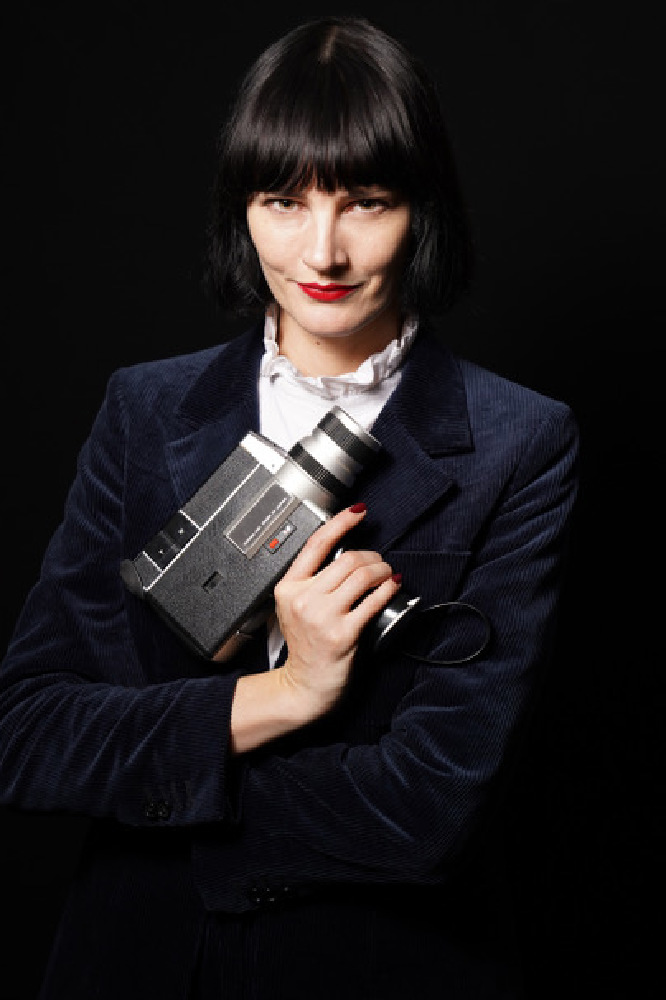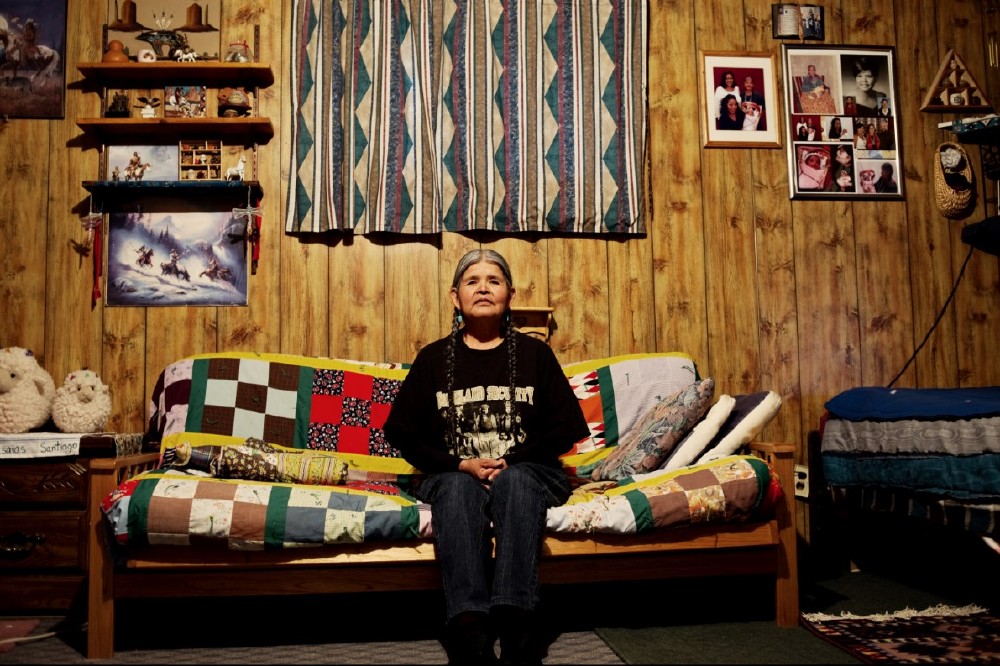This year we were introduced to a story that shocked us to our core. It's not uncommon for Europeans to be completely unfamiliar with Native American culture, but it's perhaps more shocking that the people who live alongside them don't even know what's happening to indigenous tribes at this very moment.

Lorna Tucker
Filmmaker Lorna Tucker (Westwood: Punk, Icon, Activist) embarked on a journey to the States ten years ago to meet a host of women who had been subjected to one of the most horrific, mostly undocumented human rights abuses of the 20th and 21st centuries: forced sterilisation. For years, a government eugenics program has seen Native American women being coerced or tricked into giving up their right to bear children, and Lorna's new documentary Amá aims to expose the extent of that heartbreaking injustice.
It was amazing timing that Lorna managed to complete the project in the year dominated by the #MeToo movement, especially as this is something that happens all over the world. Women are rising up and getting their voices heard, standing up for their sisters and demanding to be in charge of their own bodies. She spoke to us about just how important this story is to that shift in attitude.
"It's actually finished in the year, finally, we are talking about women's rights", she told us. "#MeToo needs to get behind this film - this is like the ultimate "#MeToo". The film has come out in a setting where the world is ready to listen and everyone's talking about women; their fertility, their rights, the right to choose the size of their family. This topic has landed, after all these years, at the right time."
This tragedy isn't something that has happened to just a handful of people, but the fact is we may never know just how many it has affected. Medical records can be lost, procedures can go undocumented, a vast amount of victims have since died and many that are living are possibly still unaware whether or not they are sterilised.
"Officially there's tens of thousands of victims out there but on reservation it's widely spoken about that the numbers are higher because there's never been an official investigation", Lorna explains. "Everyone knows of an aunt that's sterilised or a cousin that was sterilised, it's very well talked about.
"There were girls as young as 15 that had gone to their doctors with stomach aches, that never had any children, that were forced into sterilisation without their knowledge. It was rampant", she adds. "It's had devastating effects on a couple of tribes where there's no full-blooded Native women that could carry forward a new generation. That's a whole race of people wiped out."

In case you were wondering, yes, that does mean it falls under the definition of genocide, and it's still happening in North America today. Just last year in Canada it emerged that at least sixty indigenous women had been coerced into sterilisation before they were allowed to see their newborn babies. Lorna hopes that with Amá, she can bring about free screenings on reservation to educate Native young women so that they can learn to say no to doctors.
"There needs to be an investigation, an official study happening. We need to put pressure on them to make that happen", she says. "We're never going to move forward until there's accountability, until the US government admits this has happened and helps to support Native communities to heal themselves. We need to talk about it, we need to break the silence because whilst it's still a secret and whilst nobody is talking about it, it's going unaccounted."
Lorna first took interest in the project when she was given a book on the subject by Ian Astbury from The Cult when she was on the road doing their tour photography. She read about the Oliphant law and the sterilisation abuses that were happening and decided to go out and meet some of the women who had suffered.
"I didn't know anything about Native American culture or issues that were going on at the time so reading the book was really quite shocking", she confessed. "I didn't set out to make a feature documentary, all I wanted to do was meet some of the women that the book was talking about: the activists and lawyers trying to fight for Native rights."
She wanted to be a vehicle through which these women's voices could be heard internationally and so ten years ago she made contact with Charon Asetoyer who had been doing a lot of work on reservations to help vulnerable Native Americans. Of course, there was always the risk that as a privileged white woman she was not going to be taken seriously in her attempt to document this story, which is why it was so important to her to meet as many Natives as possible.
"There's a woman who's not in the film but she was one of our Native American advisors so she'd edit and make sure it was respectful and it was coming at it from a Native-led project, not just a white woman coming in and trying to sell a story", she says.
Even so, Lorna was shocked at how many roadblocks she encountered when setting out to document this situation. At one point, she had no funding whatsoever and couldn't even afford a camera operator which, given that she was not an expert in videography, proved to be something of a challenge.

"No-one would fund me because I hadn't made a film, I hadn't studied filmmaking and I didn't even know what kind of film I wanted to make or if I was going to make a film", she recalled. "All I knew was that we needed to start documenting what was happening because we needed to, especially in England and around the world, bear witness to what was happening and camera was my tool for that.
"I couldn't raise the money to get a camera operator", she continued. "So it literally was me working a job saving up money and going out to film just so it was documented. And then it was only when The Roddick Foundation, Bedlam Productions and Raindog gave it a cash injection, got me what I needed so we could go and continue filming, we see it's this mismatch of beautiful cinematography and really shaky camera work."
It was thanks to Sam Roddick of the Roddick Foundation that Colin Firth and Ged Doherty from Raindog got involved as producers too, which ultimately enabled the film's completion. Lorna had struggled with keeping people on board the project given its longevity before they came along.
"[They] are two of the most conscience-driven artists/producers that I've ever met and the most feminist-supportive men I've met in the film industry", Lorna gushed. "Colin Firth and Ged Doherty wanted to sign up and said that whatever it took they would be committed to making sure this film finished and would come out and have the right impact with a Native-led outreach campaign. They have been nothing but unwavering support when I really needed it."
Lorna is set to shoot her first drama movie, Bare, in the Spring, exploring homelessness in the UK through the eyes of a young girl, but she is also re-teaming with Charon Asetoyer for a follow-up to Amá which will see her take more of a backseat role.
"I'm now pulling together a collective of Native filmmakers and we're collaborating on more of an interpretive, healing documentary that's covering the loopholes of the US government's justice system which is enabling these abuses to still happen", she reveals. "It's a very Native-led production so I'm working as more of a producer and a consultant. That's going to be really exciting."

